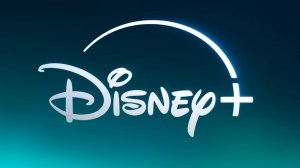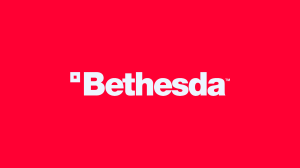If you’ve spent anytime online at all in recent years then you know that pretty much everyone has an opinion about everything and, particularly when it comes to entertainment, people aren’t shy about sharing those opinions. Online fandom especially has evolved to become very vocal about movie and television offerings — and that’s not always a positive thing. “Toxic fandom” has also grown more and more vocal with so-called “superfans” of various franchises and IP growing more and more vitriolic in their commentary. That commentary frequently results in negative impact on not only overall fandom by way of division, but for those involved in making movies and television projects targeted by the campaigns, all the way from the writers and actors and directors to the studios and their bottom line as well. Now, a recent from Variety revealed that studios are starting to put together “a specialized cluster of superfans to assess possible marketing materials for a major franchise project” to deal with the issue. It’s something that sounds like an oddly specific sort of focus group that might not have the best intent and frankly, it’s the wrong way for studios to go about addressing the larger issues of fandom backlash.
Videos by ComicBook.com
Per Variety’s report, one studio exec explained that the groups could, if conducted at the right point in a project’s development, change it — presumably based on the complaints of the so-called superfans: “If it’s early enough and the movie isn’t finished yet, we can make those kinds of changes.” It’s the part about changing a project based upon the response of a vocal few that is the issue. To be clear, focus groups or test screenings are nothing new in entertainment. It’s also nothing new for projects to be changed or tweaked or even shelved altogether after getting some limited audience feedback. The issue here lies in the idea that these groups will be centered around those vocal superfans and, therefore, might not be an accurate response to the actual quality of what is being reviewed. When it comes to negative fan reaction to a franchise project it is rarely an across-the-board sort of thing or a “everyone hated that” moment that actually unites the various pockets of fandom when a particularly unpopular choice is made. More often what occurs with the retaliation and backlash that studios are seeking to address is that it is limited to pockets of fandom that just happen to be loud and unfortunately motivated less by care for the project and more about their own personal bias: they don’t care if something is actually good or interesting; they only care if it fits their narrow idea of how the thing should be.
A specific recent example of this is Star Wars: The Acolyte. Released earlier this year, The Acolyte was generally well-received by critics, but even before the series debuted certain pockets of fandom were already being vocal about hating the series, specifically review bombing the series over its diverse elements. There were vocal complaints about the series being created by a female creator, Leslye Headland, and even more complaints targeted towards the racially diverse cast. Series star Amandla Stenberg in particular dealt with racist backlash, leading Stenberg to release a music video responding to the racism. And when The Acolyte was ultimately cancelled, they weren’t surprised, going on their Instagram Story to address the situation, speaking about the “rampage of vitriol” the cast had faced from the moment the series was even just announced — long before anyone had gotten to see the actual content of series or know what the story was even about.
And even once the show debuted, that same subset of fans continued their toxicity, at one point getting bent out of shape over an appearance by Jedi Ki-Adi Mundi in Episode 4 that was so brief calling it a cameo feels generous. The “superfans” even went so far as to level death threats at the team for Star Wars wiki page Wookieepedia in the name of “defending” Star Wars canon except… the appearance didn’t actually counteract or disrupt canon in the grand scheme. It was simply a fun, blink-and-you’ll-miss-it moment that was a wink and nod to Star Wars fans, nothing significantly more. The bottom line here is that instead of offering valuable criticism about elements of the series that didn’t work or that they didn’t like – things like issues with pacing or the actual writing – parts of the fandom took things in a dark direction and made the vitriol personal, and it sounds like it’s those sorts of “fans” studios want to lean into rather than away from.
Sadly, The Acolyte isn’t the first time this has happened within the Star Wars franchise, which seems particularly ripe for such toxic fandom. We saw this happen with 2022’s Obi-Wan Kenobi, when Moses Ingram received racist backlash about her role, and even further back than that in 2017 with the introduction of Kelly Marie Tran‘s Rose Tico which resulted in some particularly vitriolic reactions that went way beyond disliking the character and the storyline and even led to the actress disappearing from the internet. Other franchises have not been immune to this sort of attack from toxic fandom, either. We’ve seen it with Marvel, we’ve seen it over The Rings of Power, even Bridgerton, House of the Dragon, and The Last of Us with almost all of the “outrage” the same: over perceived slights that very consistently include complaints about race, sexuality, and gender, with the “superfans” decrying everything as “woke”.
Certainly, no studio wants to see their project attacked — and I’d daresay no actor, director, writer, etc. wants to be attacked over their work, either — but leaning into the toxic fandom isn’t the answer to the problem. If the complaints of these “specialized cluster of superfans” are always the same things — centered around complaints about race, sexuality, gender, things being “woke” — the problem isn’t the product; it’s the people screaming on social media over and over every time they see something that isn’t a copy-paste of what they personally identify with. By giving these sort of fans a say and having that say impact the final product, studios aren’t actually avoiding the criticism or issues that they think they are. They’re just letting the bad guys win, so to speak and while that might work short-term, it’s not a sustainable strategy. They’re merely kicking the can down the road. Catering to a vocal, frequently toxic minority will only alienate a larger audience long run, which will in turn have the same sort of negative impact that studios are hoping to counteract with these “specialized cluster of superfans to assess possible marketing materials for a major franchise project” in the first place. To put it bluntly, even if you silence the loud angry fans short term, the larger target audience that isn’t screaming angrily on the internet will, eventually, stop buying movie tickets or tuning into shows – and at the end of the day, it’s the money that studios care most about.
Valid criticism has its place. Even among the larger fandom, not everything about The Acolyte worked for every fan. There were valid criticisms about the show’s dialogue, its pacing, and even critiques that the show was “formulaic” — and even as someone who liked The Acolyte and would have given it a positive review, I can agree that it was far from perfect. It’s the same for any franchise or IP project: somethings work, others do not, but even with flaws you can still have a quality product. Criticism has its place. What has no place, however, is complaint simply because something is different or it’s outside your own narrow worldview, particularly when it comes to franchises. For big stories and worlds to survive, they have to grow and change – catering to an outspoken minority gets in the way of that and in the end, serves no one. Not the projects. Not the studios. Not even the superfans who are so vocal.
Not everything is going to be for everyone. That’s just a fact of life. People aren’t always going to universally love something. Everyone’s taste is different and there’s something to be said for take what resonates but leave the rest. Franchise fandom is big enough for everyone to find something to enjoy. But while there will never be something that makes everyone happy, I think all fans – super and otherwise – can agree on one thing and that is that we want the things we love to continue. We want new stories. We want more to enjoy. That’s the real lesson that studios need to take away from things — and it’s not a lesson that will be learned by leaning into toxicity and hate.








